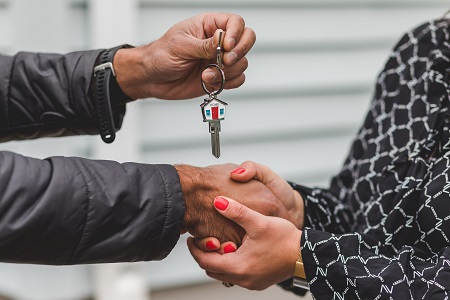The money you pay as a down payment for your mortgage depends on several things. Some of them include the type of your loan, its size, and your financial muscle. Even though some types of mortgages do not require any down payment, you can pay any amount of money you need as a down payment.
However, you need to be careful to ensure that you do not spend everything you have on a down payment. You will need money to pay loan fees and closing costs.
Lenders would also like you to have savings to cover mortgage payments for two months. So, how can you get a larger mortgage down payment, and why should you? Here are some guidelines;
How to Get Together a Larger Mortgage Down Payment
Get Incentives for First-Time Home Buyers
Getting together a larger mortgage down payment is challenging for first-time home buyers. Fortunately, there are a couple of incentives that they can use to get a larger mortgage down payment.
If you have not bought a house in three years or maybe owned a single house with your spouse, you need to look at these incentives. You can also qualify for incentives if you own a manufactured home.
HUD (Department of Housing and Urban Development) has several programs for first-time home buyers. In addition, some states have savings programs for first-time home buyers. You can also get about $10,000 from IRA without penalties for your down payment.
Look For Assistance Programs
Without the required down payment, you might be forced to accept PMI (Private Mortgage Insurance). However, you need to first check if you qualify for assistance programs. For instance, some banks have assistance programs for people who want to buy homes.
You should, therefore, check with your local banks. In addition, FHA (Federal Housing Administration) has loans designed for low to middle-income borrowers. These loans are sponsored by the American government.
If you are active in the military or are a veteran, you might also qualify for a VA loan. This is offered by the U.S. Department of Veteran Affairs. These mortgages and loans do not require any down payment and come with better interest rates.
Get a Part-Time Job
The Great Recession and the Financial Crisis of 2008 changed how banks operated concerning loans. Today, you can hardly find a bank that offers 100% home value mortgages, no document loans, or loans that do not require income verification.
They all require about 43% debt-to-income ratio and income verification. The debt-to-income ratio can be defined as a measure of how much of your income is used in paying debts. This means that you need a form of income to qualify for a mortgage.
If you do not have enough income to get a larger mortgage down payment, you can get a part-time job. This will ensure you have enough money to pay the required down payment or even more.
Why You Should Get Together a Larger Mortgage Down Payment
Your Down Payment Makes a Big Difference to What You’ll Pay Overall
Getting a larger mortgage down payment means that you will be borrowing less money. As a result, you will also be required to pay less money. This will leave you with more money in the long run.
In addition, you will also be required to pay less overall interest. The amount of interest you pay will end up affecting the total amount of money you will have to pay your lender. You can use this mortgage calculator from SoFi to understand how much you will be required to pay with your mortgage down payment.
No Private Mortgage Insurance (PMI)
If you manage to raise a down payment of at least 20% of the total value of your home, you will not be required to pay for PMI. This is a requirement for borrowers asking for more than 80% of the value of their homes.
It is important to note that you will not be compensated in any way from this type of insurance. Instead, it is used to protect the lender if you start defaulting on your loan. It costs between 0.5% and 1% of the total cost of the loan.
This will add a lot of money to your housing cost, especially if your new home is expensive. You will pay for PMI until your equity gets to about 20%. At this point, PMI is not required.
What Should You Do?
Even though some lenders might be okay with borrowers getting more than 80% of the total value of their homes, you need to try as much as you can to get a larger mortgage down payment. As you can see above, it will help you pay less money and reduce the total cost of your home.









